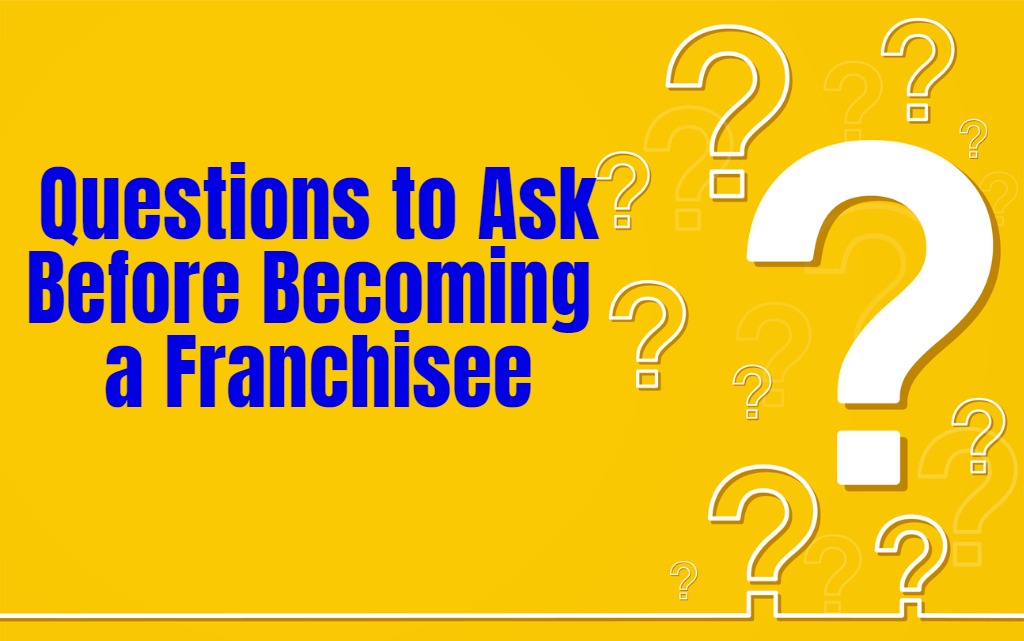
Sometimes, one of the first steps in developing a franchise plan is asking the right questions. By learning as much as you can about the franchisor and the process, you’ll ensure that this company is the right fit for you and can save you from making the wrong investment. If you’re interested in learning how to start a franchise, here are the top questions to ask.
What’s the Territory?
By “territory,” we’re referring to the geographic area in which the franchise operates. Most franchising companies have multiple territories, and it’s not uncommon for them to overlap to a degree.
It’s important to understand where you’d be operating, and whether your area faces competition from similar businesses or if there are any sort of local restrictions on your type of business.
Plus, it’s important to know if there are other franchisees in your area that you’ll need to coordinate with or avoid competing with as you launch your business.
Are There Time Limits to the Franchising Agreement?
The franchising agreement is the contract that binds you to the franchise location. In some cases, this franchising agreement contains a specified timeframe. That could mean that you’ll manage the location for five years (or some other time frame) with no guarantee of renewal.
These time limits can remove some of the security of working with an established company. Be sure to find out about timeframes and renewal options before committing. Otherwise, you might find yourself working on a shorter assignment than you may have realized.
How Much Is the Franchising Fee?
One of the first steps in developing a franchise plan will be paying the franchising fee once you sign your contract. This fee varies between franchisors, so it’s important to lock down your initial startup costs to plan your budget accordingly.
Don’t forget that there may be some additional startup costs, covering things like supplies, equipment, training, and more. As you learn how to start a franchise, you’ll need to account for these initial costs as they can eat into your budget, and you’ll need to account for them if you pursue a business loan.
Are There Additional Monthly Costs?
When you partner with a nationwide chain, you’ll likely incur some monthly costs in addition to your initial franchising fee. These costs can include such things as:
- Franchising royalty fees
- Advertising and promotional materials
- Supplies
Franchising fees can be a standard monthly payment, though some franchises will ask you to pay them a percentage of your monthly profits.
Additionally, you’ll need to check with the franchisor regarding business insurance. You’re required to have business insurance before opening, so you’ll want to check to see if your franchisor can guide you on a provider or if you need to do your own research.
What Is the Company’s Track Record?
Spend some time researching the company you’re planning to invest in. What is their public reputation like?
You can learn about their customer service reputation simply by looking at online reviews. But you should ask the franchisor about financial performance, past litigation, and more.
You should also check with “boots on the ground.” Talk to other franchise operators about their experience working with the franchisor.
These conversations may provide valuable insight into what other franchisees have appreciated about their experience, as well as the advantages of working for that particular company.
Do You Provide Training and Support?
One of the most important questions to ask involves the support the franchisor can provide. As you move your way through the steps in developing a franchise plan, you may need some specific guidance regarding company policies or how to handle certain action items. You’ll want a company that can help you navigate these decisions, particularly in the early phase of starting your franchise.
Specifically, it’s great to have a company that can provide:
- Training for new managers and employees
- Access to, or discounts on, equipment and supplies
- Assistance with permits, insurance, etc
One of the reasons that many entrepreneurs pursue franchising is that there’s no experience necessary. But if you’re new to the industry, you’ll be grateful for the support of a long-established company.
Find Your Opportunity Today
There are many steps to take when learning how to start a franchise. Thankfully, Franchise Opportunities can help you. Use our online tool to locate franchises in your area, and start your journey toward independence through franchising.
